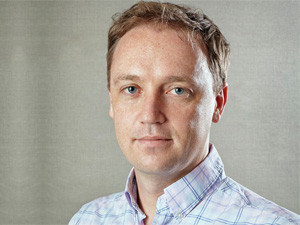
Locally-developed mobile social networking app 2go is dominating the Nigerian market, where the company claims it has over nine million active users - several millions more than Facebook.
The number of Facebook users in Nigeria crossed the five million mark this month, about 11 months since the country hit four million users, according to statistics from global social media and digital analytics company, SocialBakers.
In May this year, 2go revealed that it had hit 20 million users globally. It explains that 2go is a mobile platform that allows users to communicate with friends. Users can set up their profiles, meet new people, talk to friends, as well as share files and pictures.
However, according to a study by local market research firm World Wide Worx regarding social networking and instant messaging, 2go has a 5% market share in SA while Facebook leads the market with 38%. 2go also trails platforms like WhatsApp (26%), Mxit (23%), BBM (17%), Twitter (12%), and Google Talk (9%). Nonetheless, 2go is on top of Skype, which has a 1% market share, according to World Wide Worx.
2go explains that the platform requires a network connection, which a mobile operator charges an amount for, but claims that this costs much less than it would to send an SMS.
Peter Lockhart, director of 2go, says the challenge in Nigeria has been balancing a focus on what 2go's users want - a cheap, easy way to chat and socialise using their mobile phones - with the deep technical expertise needed to deliver that experience across thousands of different devices.
"Building mobile technology for an African market is tough," says Lockhart. "Data and SMS are expensive, and our users are price-sensitive and savvy. That means we have to deliver an application that uses the absolute minimum of system resources and bandwidth.
"Our response has been to develop proprietary communications protocols and compression algorithms that minimise the app's data usage."
The company also notes that the 2go team has cracked the technical challenge of producing an app that works equally well on the myriad feature phones that still dominate the African market.
"It's much, much harder to develop for feature phones than for smartphones," says Lockhart. Partly because there is such a variety of platforms and operating systems. You need deep technical knowledge. This technical knowledge also extends to our ability to scale the back-end in a very resource-efficient manner."
The fact that 2go works well on many handsets has been critical to the viral spread of the app, says Lockhart, adding that feature phones are not going away any time soon. "Projections from Informa indicate that non-smartphones will still comprise 85% of the African handset market in 2015."
2go has also resisted the temptation to bloat its app with added features, adds Lockhart. "Our users log in and out quickly, several times a day - they want things to be quick and simple," he says. "We've thought through every menu item; every pixel is there because it serves a purpose."
Alongside this technical focus, he adds, 2go has also remained extremely alert and sensitive to the needs of its users.
"Our target market is not some kind of generic 'Africa'," says Lockhart. "We ask what country are they in, what region, what city. 2go really took off in Nigeria when we noticed that our users wanted to be able to chat within their university communities. So we did the research and created a chat room for each university in the country."
2go also actively solicits and follows up on suggestions from its users, adds Lockhart. "People want to be asked for their opinions. Many of our users are starved for entertainment and engagement. Thirty-one percent of our Nigerian users tell us they don't watch television, but 66% of them spend two or more hours on their phones each day. It's a very sociable society, and 2go supports that sociability."
According to 2go, the insights gained in Nigeria have fed back into the South African market, where 2go has 1.5 million active users and counting.
The app also provides gateways to other popular social networks, such as GTalk, Mxit and Facebook.
"I use 2go to chat with friends on Facebook and they have no idea," says Lockhart. "Our whole mission is to make chat easy, cheap and painless, no matter what device you're using."
Share